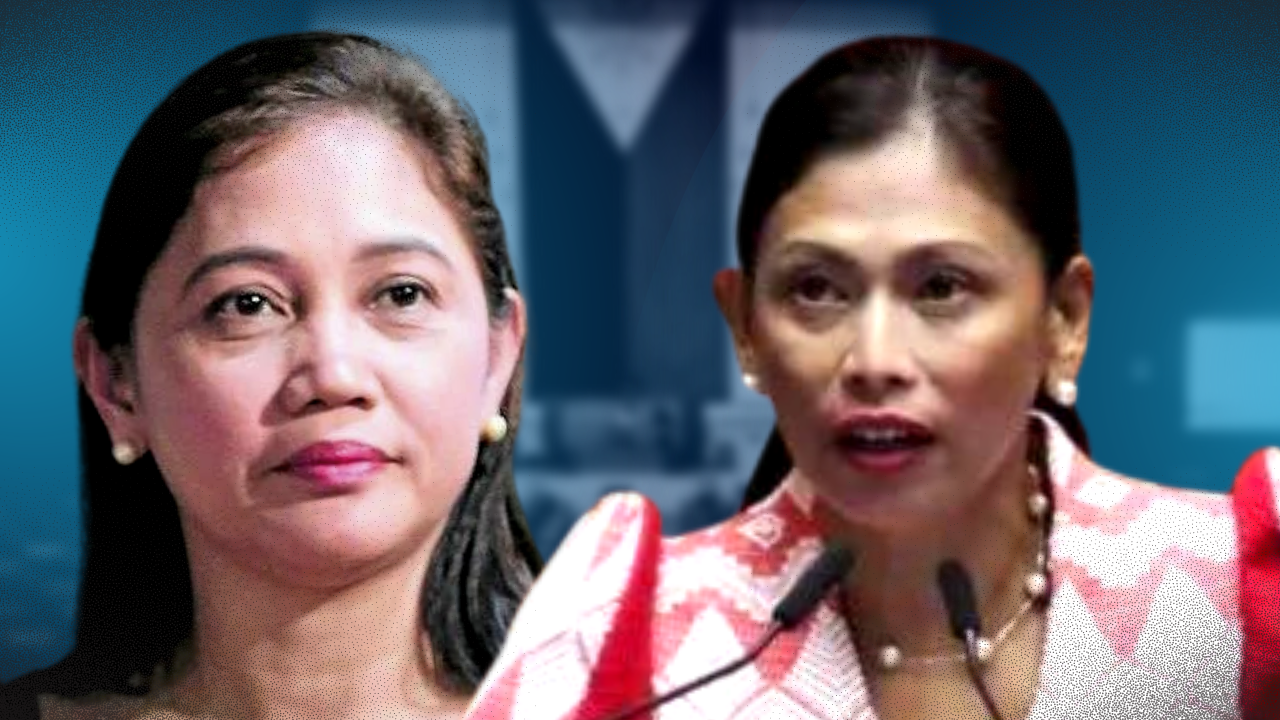MANILA, Philippines — Rep. Arlene Brosas of the Gabriela party-list and Marikina Rep. Stella Quimbo disagreed on Tuesday about the sufficiency of direct aid funding in the proposed 2023 national budget.
The direct cash aid is not enough for the people seeking ayuda, as it’s commonly known, Brosas said in her interpolation during the plenary debates on the 2023 National Expenditures Program (NEP) at the House of Representatives.
Brosas, a member of the Makabayan bloc, said the NEP — the proposed budget for 2023 — appeared to be out of touch as it failed to to address the pressing need for social assistance.
As an indication of that, she noted the high number of students that turned up in various offices of Department of Social Welfare and Development (DSWD) last August in search of aid.
“I want to look at it from the lens of what is happening on the ground. It is very evident that for this proposed 2023 budget, we have no direct aid even as the people badly need it. For example, when the DSWD announced the provision of a student aid, a concrete image of desperation and emergency were seen among Filipinos, as they lined up all day and night just for a P1,000 cash grant,” she said in Filipino.
“Mr. Speaker, Madam Sponsor, why can’t we allocate funds for direct cash aid during these very difficult times?” she asked.
Enumerating direct aid items
Quimbo, the vice chair of the House Committee on Appropriations who sponsored the budget, countered Brosas by enumerating several items in the proposed budget that could be considered direct aid to poor families.
“Mr. Speaker, with all due respect to Representative Brosas, we have a lot of direct aid included in our budget,” Quimbo said.
She mentioned three programs:
- the Assistance to Individuals in Crisis Situation (AICS)
- the Tulong Panghanapbuhay sa Ating Disadvantaged/Displaced Workers (TUPAD)
- the Pantawid Pamilyang Pilipino Program (4Ps)
The AICS has a total budget of P19.9 billion, the payout of which the beneficiaries would receive directly, Quimbo said.
“In fact, the educational assistance from DSWD that you are talking about — that is part of the AICS program,” Quimbo said, speaking in a mix of English and Filipino.
“So maybe we just do not share the same terminology, but following that definition, TUPAD is actually a direct cash aid. The 4Ps is another direct cash aid — beneficiaries receive the money through their Landbank ATM cards,” she added.
Social pension is also a direct cash aid, Quimbo went on.
In contrast, an example of indirect cash aid is the assistance given by the Philippine Health Insurance Corp. (PhilHealth), because the money goes through a third party which in turn pays hospitals.
Quimbo also clarified the 2023 NEP also had several items that were not direct aid but could help solve poverty — such as policy tools that would address agricultural and other issues.
Allocation too low
Brosas insisted, however, that the allocations for direct aid were too low.
For example, she pointed out that the increase in the 4Ps budget was for administrative expenses and not for additional beneficiaries.
She also noted that the policy tools Quimbo mentioned could not be seen. They would still have to be implemented properly and lead to income-generating activities.
“Mr. Speaker, Madam Sponsor, we have yet to see what you were talking about […] But the condition now is that we have 2.3 million poor Filipinos who need assistance, who need a safety net which you said is not included in the proposed budget,” Brosas said.
“The budget for the 4Ps increased, but no additional beneficiaries would be included. The economy opened, but no jobs were available. So Mr. Speaker, where in our budget for 2023 is allocated [funding] for helping provide direct aid for our people?” she added.
Other goals also need support
In response, Quimbo explained that, as important as social aid might be, other medium and long-term programs should be supported.
“The simple answer is that it is all over the place. The NEP is three volumes long and has thousands of pages… So, there is a sound economic plan which requires a whole government approach,” Quimbo said.
“Social assistance is important. It is still here in the budget. But it is not enough to rely on social aid alone. We need other programs, and I believe it is here in the proposed budget for the year 2023, Mr. Speaker,” she added.
The House started its session early, at 9:00 a.m., to officially begin the plenary debates for the 2023 budget.
Over the course of the day, lawmakers were able to tackle the budget of the Department of Finance, the National Economic and Development Authority, the Office of the Ombudsman, the Commission on Human Rights, the Commission on Elections, the Department of Science and Technology, and the Anti Red Tape Authority.
However, the budget of the economic cluster was deferred as the heads of these agencies were not present at the plenary, as they were part of the official delegation of President Ferdinand Marcos Jr. in New York.
Last Friday, the House Committee on Appropriations finished the per-agency hearing in accordance with its self-imposed deadline. Under its schedule, the earliest the House may approve the proposed budget is on Sept. 28 and the latest would be on Sept. 30.
RELATED STORIES
House plenary debates on proposed 2023 budget start
House still on track to approve proposed 2023 budget by October
House vows to scrutinize every centavo of proposed 2023 national budget
